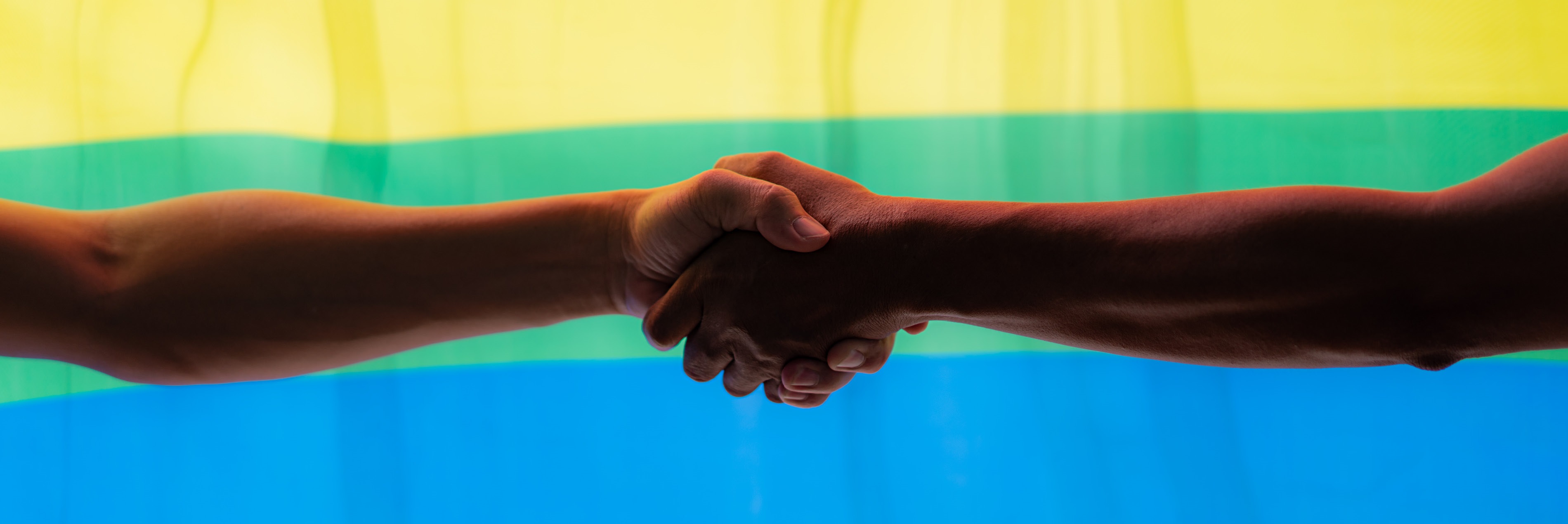Each June, I can usually be found doing two things: attending LGBTQ Pride parades and refreshing SCOTUSBlog for updates on major Supreme Court cases. I knew that I wouldn’t be attending any parades this year due to COVID-19, but I never expected to hear Monday’s Supreme Court ruling confirming that the Civil Rights Act of 1964 applies to discrimination based on sexual orientation and gender identity. This is a huge win for LGBTQ rights! It was a surprising 6-3 ruling to prohibit firing individuals for being LGBTQ. Of course, the joyousness of this win is complicated.
It feels like an impossible moment to celebrate Pride, and not only because parades, marches, and events have been cancelled. The ongoing twin pandemics of COVID-19 – along with its disproportionate impacts on people of color and the Black community specifically - and the unrest surrounding the increasingly exposed racism within our justice system have shown just how far we need to quickly go. Both of these events show the disproportionate impacts of racism in our country that too often leads to the deaths of our Black queer and transgender community members.
At the same time, never before has Pride felt so close. The June 1969 police raid on the Stonewall Inn inflamed six nights of protests, and the annual Pride we celebrate is a reminder that the first Pride was a riot against injustice, disproportionally faced and led by LGBTQ people of color.
All of our struggles are intertwined, as our lives are intertwined, and we now have even more proof that intersectional movements are powerful. We know, too, that the personal is and has always been political, and that to not only win but also implement and codify change we must actively seek personal and professional growth that centers the interrogation of racist and discriminatory laws, systems, and institutions.
The Bostock v. Clayton County, Georgia ruling is a crucial lesson; that protest, education, and advocacy lead to culture change and legal protections that increase equity and justice for marginalized communities. I am particularly moved by the fact that the Civil Rights Act of 1964, prompted by Black-led actions and the 1963 March on Washington for Jobs and Freedom, has the power to protect other groups facing discrimination.
As one of our clients, Funders for LGBTQ Issues, noted in their statement in support of Black Lives Matter:
“While the LGBTQ movement has indeed won important victories for our community, the fight for LGBTQ liberation will not be won until all LGBTQ people are free. The white-supremacist and militarized violence that continues to terrorize Black and indigenous people of color, particularly queer Black people and Black trans women, is one of the greatest challenges facing our movement at this time. The LGBTQ movement owes much to transgender people of color who resisted police violence.”
As my fiancée and I watched the recent March for Black Trans Lives, handing out snacks and water to some of the 15,000 Brooklynites dressed in white, I allowed myself to imagine what change might be wrought by this moment, by this movement. As Stacey Abrams wrote Monday, “A law made real by protest in 1964 protects folks in 2020.” The policies and institutions that we build today through our actions will have lasting implications, and we can only hope that the work we do today lays the foundation for future equity and justice.
At Amalgamated Bank, I feel enormously privileged to work for an institution that not only tolerates but actively affirms and empowers who I am as a queer woman. I know that not all of my community are so lucky. The Bank signed on to an amicus brief in support of this ruling several months ago, and has continued to support clients and employees who are passionate about social justice. The Amalgamated Pride Employee Resource Group will be donating a large portion of its funds this month to several Black-led LGBTQ organizations* in honor of Pride month, Black Lives Matter, and the many Black LGBTQ lives lost to police violence and white supremacy, including Tony McDade, Nina Pop, Layleen Polanco, Dominique 'Rem'mie' Fells, and Riah Milton.
This ruling is crucial to protecting my fellow LGBTQs from workplace discrimination, and hopefully will offer ancillary protections for us in healthcare, housing, and more. Our communities mourn together, and we celebrate together; the joy of this moment amid so much tragedy serves to highlight the continued need for intersectional change that we are all working towards.
Dara Kagan is First Vice President of Commercial Banking and Co-Chair of Amalgamated Bank’s Pride Employee Resource Group.
*Funds were donated to The LGBTQ Freedom Fund, The Okra Project, Solutions Not Punishment, The Audre Lorde Project, National Black Justice Coalition, and Griffin-Gracy Educational Retreat & Historical Center

 Mobile Image
Mobile Image
 Mobile Image
Mobile Image
 Mobile Image
Mobile Image

